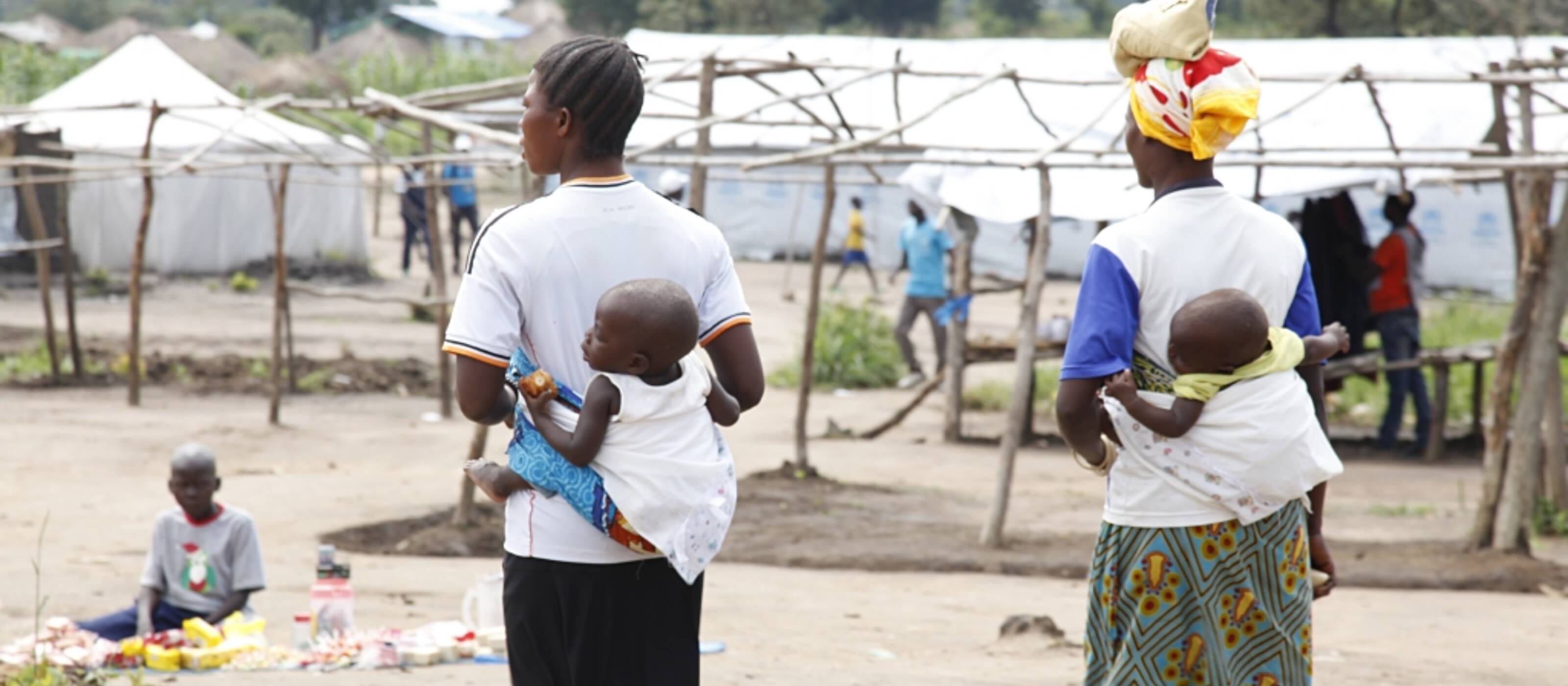

From one misery to the next
The ongoing conflict in Sudan has left over four million people displaced. Many have sought refuge in neighboring South Sudan, their former homeland. However, the humanitarian situation there is dire as well. «The most vulnerable people are in urgent need of assistance,» emphasizes Albino Akol Atak, South Sudan's Minister of Humanitarian Affairs and Disaster Management, in an interview with Caritas Switzerland. Responding to this crisis, Caritas Switzerland launches a comprehensive emergency aid program.
The impact of the Sudan conflict has extended far beyond its borders, affecting neighboring countries as well. Over 240,000 individuals have already registered at the South Sudanese border, including many returnees who had previously fled from South Sudan to Sudan due to conflicts, food insecurity, and natural disasters such as droughts and floods.
Forced to return to their old homeland, along with thousands of Sudanese, most of these individuals have sought refuge near the town of Renk, located at the South Sudanese border. However, their access to necessities such as food, water, sanitation, and medical care remains uncertain. «The current humanitarian situation in South Sudan is reaching a critical point,» confirms Minister Albino Akol Atak. «Even before this recent refugee movement, we faced numerous challenges, including limited access to essential services.» Now, the situation has become even more desperate.
Responding to this urgent situation in Renk, Caritas Switzerland, in collaboration with its local partner organization African Development Aid, initiated an emergency aid project last spring. This project provides cash aid to new arrivals, ensuring their most immediate needs are met. Additionally, psychosocial support is offered to help individuals cope with the trauma they have experienced.
People in Gorom camp, Juba, lack of everything
The initial emergency aid provided is of immense importance. Upon arriving in South Sudan, all individuals find temporary shelter in United Nations transit centers. However, after three days, they are required to leave these centers. While those without roots in South Sudan are accommodated in official refugee camps, returning refugees are not. The government assumes that they will quickly return to their homes in South Sudan. However, the reality is different for many of them. With little to no ties or family left, they are left with no choice but to reside in informal camps. One such camp is Gorom camp, located in the capital city of Juba. This camp, originally built for 4,000 people, was already overcrowded before the escalation of the Sudan conflict.
Presently, the Gorom camp is home to approximately 15,000 people who live in undignified conditions. They construct makeshift huts using materials found on the streets. The severity of the situation has not gone unnoticed by the South Sudanese government. «There is an acute crisis in Gorom camp, where even the most basic needs such as food, healthcare, and education are not being met,» acknowledges Minister Albino Akol Atak. «The most vulnerable people require immediate assistance.» Unfortunately, the South Sudanese government is unable to provide sufficient support for so many refugees and the UN funding has reduced dramatically due to other competing priorities.
The ambitious plans of Caritas in Juba
Caritas Switzerland recently became aware of the dire circumstances in Gorom camp, prompting them to take immediate action. Recognizing the urgency, Caritas Switzerland has already delivered various essential items to the camp and is now developing a comprehensive emergency aid project in collaboration with Caritas Juba. This project aims to provide food supplies, medical assistance, educational opportunities for children, and vocational training for adults.
Minister Albino Akol Atak endorses Caritas' involvement in Juba, «Caritas Switzerland has established effective collaborations with local actors and plays a crucial role in addressing humanitarian needs in South Sudan, especially in Gorom camp». However, he emphasizes the need for more organizations to join forces and alleviate the suffering of families. «The more partners we can engage, the better and faster we can bring relief to those in need».
The plans of the two Caritas organizations have garnered significant interest from numerous institutions. Caritas Switzerland has successfully convened a consortium of Caritas family in South Sudan, pooling their expertise in education, water and sanitation, livelihoods, and protection. Together, they aim to raise awareness about the challenging situation in the Gorom camp and secure the necessary funds to support the relief efforts
Furthermore, it is essential to note that the forthcoming Global Refugee Forum, which is taking place from 13th to 15th December in Geneva, provides an opportunity for the international community to come together and address the larger issue of the global refugee crisis. By raising awareness about the Gorom camp and the urgent need for assistance, we can contribute to the discussion and encourage individuals and organizations to act.
Author: Daria Jenni, Media and Public Relations Officer, Caritas Switzerland
For interview requests and further information, please contact: medien@caritas.ch
Further information
Header image: © Joseph Kitsha